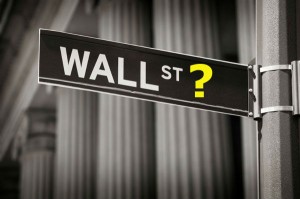by | ARTICLES, BUSINESS, ECONOMY, POLITICS, TAXES

Democrat politicians and “economists” have found a wonderful populist issue for the the current election cycle – raising the minimum wage. The economists (including Krugman, Goolsbee, etc) make the argument that the most obvious, serious problem — loss of entry level jobs and non-hiring at new entry level positions — is not a significant factor, and they have even been able to marshal some studies to support this.
They then argue that the higher minimum wage puts more money into needy families and therefore strengthens the economy. This argument just happens to have a wonderful political effect for these Democrats: it makes them seem sensitive to the plight of the needy, while making Republicans look like shills for those greedy Republican businessmen who are only trying to squeeze every last dollar out of their poor employees.
Just one problem — the Democratic position is baloney, and the economists know it, because it is simple economics 101. No businessman would be willing to pay an employee more than the economic value of the employee.
Let’s assume that the rise in the minimum wage puts the cost of employee in excess of the value of that employee. The employer may then 1) terminate the employee (saving the excess of cost over productivity) or 2) buy equipment which, at that price, becomes cheaper than the employee.
But let’s say the employer keeps the employee, just paying him more for the same work he did before. The employer will then either a) earn a smaller return on his investment, reducing the amount he will be able to invest in the business in the future; b) he will raise his prices, which will maintain his profit margin, but will reduce his sales volume, or c) some combination of a) and b). In either case, economic growth of the economy will be hurt.
By citing narrow studies where short-term noise could easily hide the effects of small changes in the minimum wage, these political “faux-economists” are abusing economic appearances to serve a political end.
Furthermore having a national minimum wage when price and wage levels vary so markedly across the country is truly nonsensical.
The country will be better off when economists remain true to their profession.
by | ARTICLES, BUSINESS, ECONOMY, FREEDOM, GOVERNMENT, NEW YORK, OBAMA, POLITICS, TAXES

What is Wall Street, anyway? I would be willing to bet that 90% of the protesters from Occupy Wall Street and of self-styled liberals have absolutely no idea what Wall Street is, what it does, and how important it is.
If not for Wall Street, there wouldn’t be any Main Street, certainly not as we know it today.
In order for any business to be successful, it must run on capital. Capital can be funded by an owner’s personal investment or through funds from outside investors. The ability to grow from the Mom and Pop store to the bigger corporation model is dependent upon the business owner’s ability to get risk capital.
This risk capital is necessary to rent the space, hire the employees, grow the inventory,and buy the equipment to get the business going. There is no guarantee that this money could ever be paid back. But the investors are willing to risk their hard-earned money in the hope that the venture is successful enough to 1) repay the money borrowed and 2) to give back a reasonable profit for the risk taken.
So where does that money typically come, that risk capital? Wall Street. Look around the house at what you have. Your lights? From the utility company. Where did that capital come from to build the utility plants, to lay the distribution networks, to expand them? Risk capital. Wall Street. Where did Macy’s get its start? Or Google, or IBM? Or any of the energy, pharmaceutical, or chemical companies? Or virtually any large corporation you can think of today — where did it get its funds to really get going and continue to grow? Wall Street.
And the people on Wall Street, people sometimes described (invariably by clueless politicians and populists who know nothing about what it takes to run a business or create jobs) as paper-pushers who make unconscionable amounts of money, what do they do?
They must be able to analyze how businesses (Main Street) work, and which ones (out of the many thousands out there all claiming to be worthy) are likely to be successful. They must develop the confidence of potential investors, and convince them to invest in these projects. They must bring the companies and investors together to agree on how much of the company the investors would get for the amount of capital that is being invested. Should the money invested be equity (ownership in the company) or bonds (loans to the company), and if bonds, what interest rate? Most importantly, more than in any other business, pay day never comes to Wall Street unless the capital is successfully raised. And if Main Street is not successful with its new capital, good luck for that Wall Street company in trying to raise money for its next project.
There have been abuses on Wall street, certainly. But there is absolutely no reason to believe that there are any more abuses than in any other business. And those abuses almost always are paid for with serious financial pain to those companies.
But none of these abuses can compare with the financial abuses and mismanagement that we endure daily from our government. Our government has us at the brink of bankruptcy, with a $17 trillion dollar debt (more than 100% of our GDP) which balloons to more than $100 trillion if our entitlement obligations are included.
We have President Obama and the Democratic leaders of the Senate (Harry Reid) and the House (Nancy Pelosi) saying that this is not a current problem (clearly not the truth) and spending money they don’t have to get votes for the next election. A short trip through YouTube (circa 2004-2005) clearly show that Barney Frank (Democratic House…), Chris Dodd (Democratic Senate ….) and Maxine Waters (Democratic House ….), among other Democrats, were principally responsible for the recent economic meltdown. The videos of Congressional Hearings demonstrate unquestionably that Fannie Mae and Freddie Mac were cooking their own books and lending to dangerously unqualified borrowers, but the Democrats prevented any remedial action to be taken.
And taxpayers and Main Street have borne the heavy burden of their negligence during this sluggish, anemic economic recovery.
Wall Street is an invisible backbone of our economy — providing the money and investments that are necessary to continue America’s upward mobility in all facets of our lives. Focusing only on trumped up Wall Street problems or buying into the class warfare hatred of the rich is misguided — especially while giving our government a free pass to use and abuse our taxpayer money each day.
by | BLOG, BUSINESS, ECONOMY, NEW YORK

I Love NY (money)
Knowing that Gov. Cuomo’s is considered a possible contender for 2016, his use of taxpayer funds in this regard is appalling. My latest on Canada Free Press this morning:
It is an outrage that Gov. Andrew Cuomo is spending up to $140 million of taxpayer money and funds received for disaster relief, to publicize the advantages of conducting business in New York. New York is indisputably one of the most unfriendly business states, with a Legislature that piles huge administrative burdens onto businesses and a Department of Taxation that is among the most aggressive in the country.
Thanks to the NY Legislature, the state demands a payment of an LLC fee every Jan. 30, causing large administrative burdens disproportionate to a small amount of additional tax revenue. It also requires a high minimum-wage, creating an unnecessary and expensive burden on small businesses.
The state also introduced a brand new “MTA” tax with new forms to fill out as a separate levy, simply because they did not want to take the heat for raising existing rates. When a huge outcry against this ridiculous tax was made, the state’s “fix” was to exempt some lower income businesses while making the complications for the remaining businesses even worse.
New York State recently created a new burden on all employers requiring every employer to make specific annual reports to each of its employees in significant detail, a provision clearly intended more to provide fodder for employer lawsuits than to protect the rights of workers. As long as Sheldon Silver continues as Speaker of the NYS Assembly (and a current partner in an anti-business civil litigation law firm), the legislature will continue to make it inordinately difficult to carry on with business in New York. It should be noted that some well known restaurant organizations have sworn never to open any new facilities in New York State, specifically due to its impossible and litigation-friendly business environment.
The Legislature continues to add the latest nanny state employment regulations each year, making New York a gold mine for lawyers to sue employers over technicalities. Its insistence on giving enormous amounts to its public-service unions guarantees that the tax burden will keep growing in the years ahead. And New York has the “only one in the world” statute (called the Triborough Amendment) — that requires the state to continue paying its public service employees on the items contained within an expired contract — making it impossible to negotiate any austerity.
The New York Department of Taxation is no better, as it ruthlessly goes after extra New York City taxes paid by state residents and New York state taxes paid by non-New York state residents. It demands huge and automatic penalties built into tax law on each assessment, penalties that are used as levers to get the New York taxpayer or business owner to agree to compromises that they often don’t really owe.
One anecdote that encapsulates this mentality is the individual who lived with his family out-of-state. He bought a home for his elderly parents in Staten Island and was successfully taxed as a NY City resident. The state’s determination? He had a key to the front door, and a few items of clothing in the closet!
Clearly, for the average person in New York, it is an onerous state in which to do business. If Mr. Cuomo wants to create a better business image, he must make the state a better and more business-friendly place from the ground up. Instead of trying to deceive people with taxpayer funded propaganda into thinking that New York has a healthy business climate, use that $140 million to reform his deplorable Legislature and Department of Taxation. Any non-NY business that falls for Gov. Cuomo’s propaganda campaign gets what it deserves.
by | ARTICLES, BUSINESS, ECONOMY, GOVERNMENT, OBAMA, POLITICS
Our taxes built that.
If you were successful, somebody along the line gave you some help. There was a great teacher somewhere in your life. Somebody helped to create this unbelievable American system that we have that allowed you to thrive. Somebody invested in roads and bridges. If you’ve got a business — you didn’t build that. Somebody else made that happen. The Internet didn’t get invented on its own. Government research created the Internet so that all the companies could make money off the Internet.
Roads and bridges? Internet? Built by capital revenue provided by taxpayers and business owners, not the faceless “government”
Without the hard work and innovation by our citizens, wealth could not have been created. That wealth provides the thriving economy and tax revenue to pay for all the functions of government (necessary and unnecessary) — be it it infrastructure, education, or technology.
Obama seems to have forgotten that part…until he needs more taxes for his deficit spending and expansive government programs. Only a self-absorbed government bureaucrat could argue that their existence justifies everyone else’s existence.
Facts are stubborn things. Yes, we built that.
by | BUSINESS, GOVERNMENT, HYPOCRISY
As Obama keeps pushing his (non) jobs bill that looks like another stimulus package, I’m tired of hearing that the bailouts worked. One of the amazing non-stories in the country is that when the bailouts occurred, what the government was doing was taking those companies and their employees who were totally solvant (ie Ford, Chrysler, etc) and rewarding their achievement by having their competitor bailed out (GM). If there has ever been unfair competition in this country, it was then. Those companies competed unsuccessfully, and then were given government money so they could produce again. This is pure hypocrisy — and practically discrimination — toward those successful companies.


